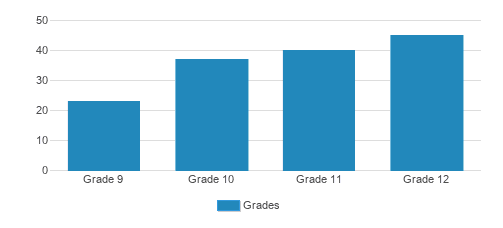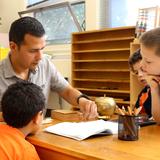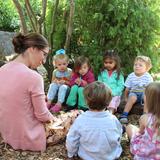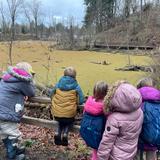Mt. Scott High School (grades 10-12) enrolls up to 75 students with an average teacher to student ratio of 1 to 15.
Courses are offered in language arts, math, social studies, science, health and P.E., plus a variety of electives.
Students participate in service learning activities, as well as outdoor educational experiences.
The school employs a full-time counselor and counseling interns, and provides individual tutoring services through a variety of volunteers.
Mt. Scott High School also offers the aspire program, which provides mentoring and resources to help students access education and training beyond high school.
The school is located in the Laurelwood United Methodist Church education wing near the corner of Foster and Holgate in SE Portland.
Quick Facts (2026)
- School Type: Alternative School
- Grades: 9-12
- Enrollment: 131 students
- Application Deadline: None / Rolling
- Source: National Center for Education Statistics (NCES)
School Overview
School Type
School Membership(s)School Assoc.
Religious Affiliation
Grades Offered
Grades 9-12
Year Founded
1994
School Calendar
Campus Size
2 acres
Student Body
Total Students
131 students
Student Body Type
Co-ed
% Students of Color
34%
State avg.: 25%
Students by Grade

Academics and Faculty
Total Classroom Teachers
12 teachers
Student-Teacher Ratio
11:1
National avg.: 11:1
Tuition and Acceptance Rate
Admission Deadline
None / Rolling
Application URL
Source: National Center for Education Statistics (NCES)
Frequently Asked Questions
When is the application deadline for Mt. Scott Park Center For Learning?
The application deadline for Mt. Scott Park Center For Learning is rolling (applications are reviewed as they are received year-round).
In what neighborhood is Mt. Scott Park Center For Learning located?
Mt. Scott Park Center For Learning is located in the Mount Scott Arleta neighborhood of Portland, OR.
School Reviews
Endorse Mt. Scott Park Center For Learning. Endorsements should be a few sentences in length. Please include any comments on:
- Quality of academic programs, teachers, and facilities
- Availability of music, art, sports and other extracurricular activities
- Academic or athletic awards
Recent Articles

A Parent’s Guide to 2026 High School Teaching Methods
Explore 2026 high school teaching methods, from AI integration to project-based learning, and what they mean for your teen’s success.

10 Misconceptions About Private Schools in 2026
Discover the top misconceptions about private schools in 2026, including cost, diversity, academics, and admissions realities.

Private Schools & Sustainability in 2026
Explore how private schools are advancing sustainability in 2026 through green campuses, eco-curriculum, and climate leadership initiatives.









